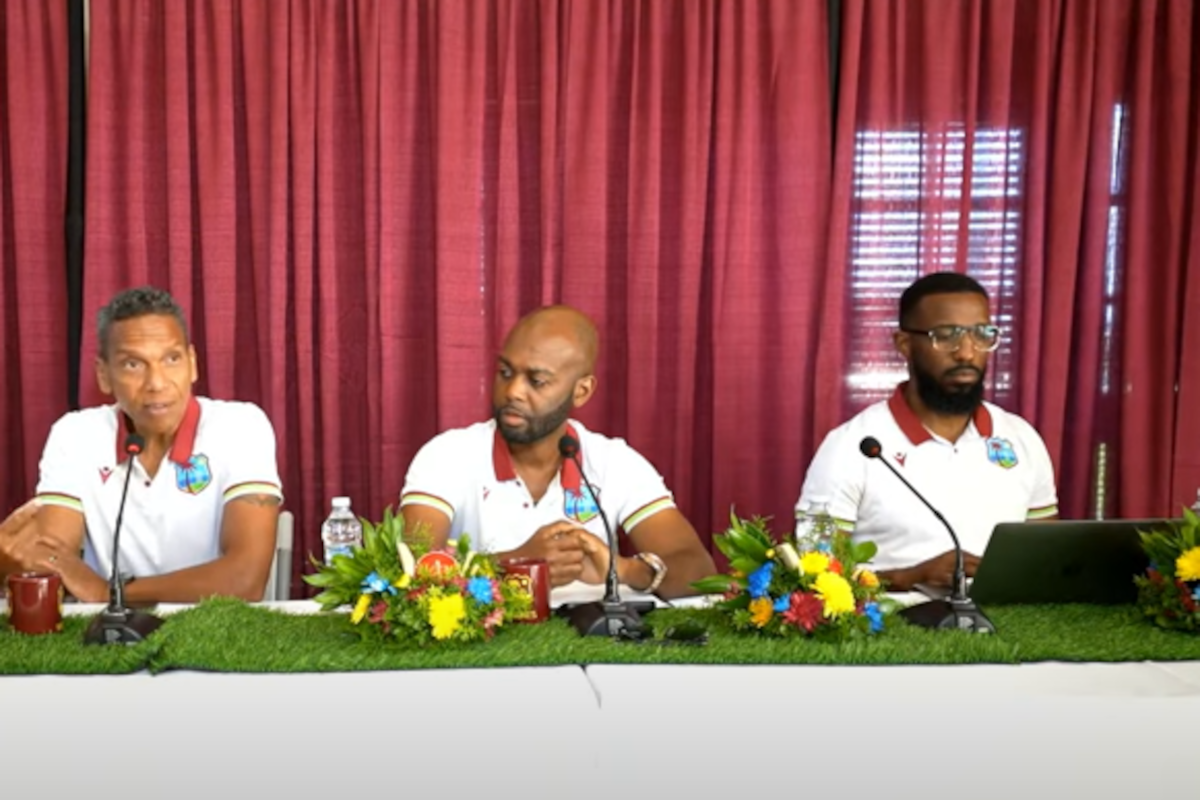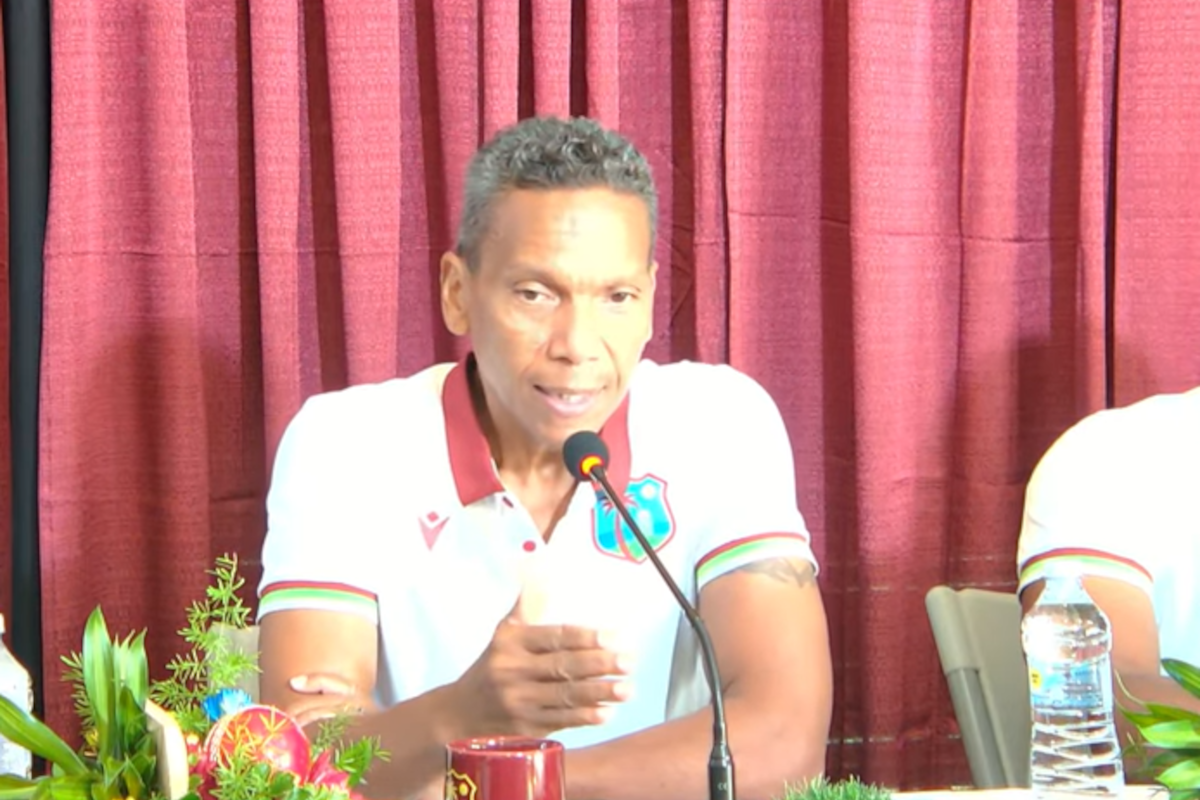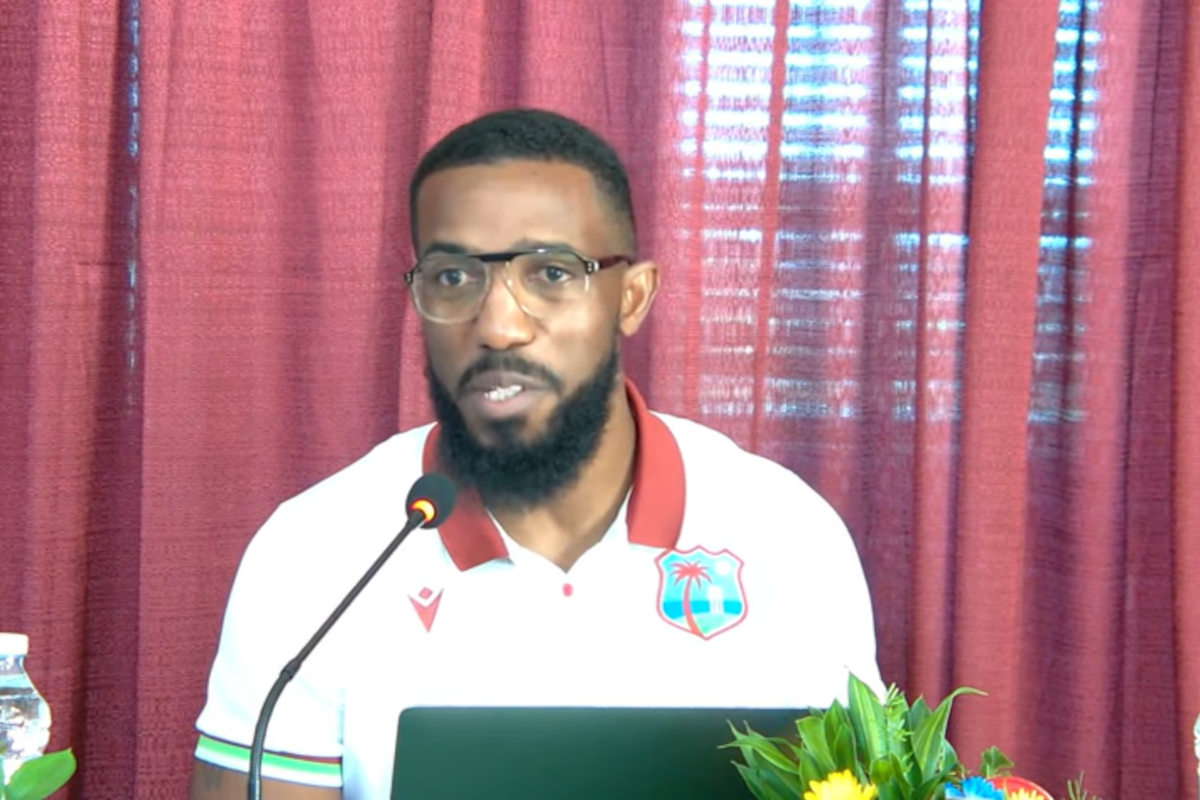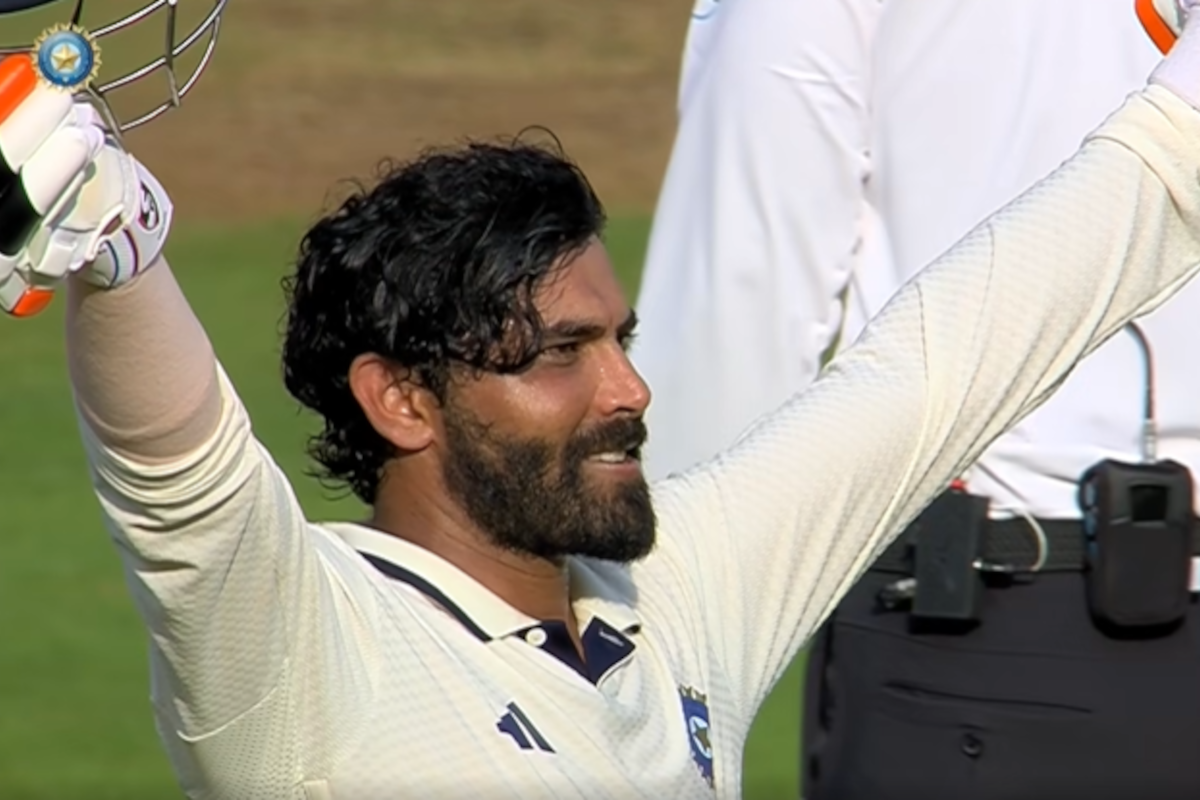Cricket West Indies (CWI) has announced sweeping changes for 2026 which will see a cut to, and restructuring of, some regional tournaments due to what president Dr Kishore Shallow has described as a “chronic financial situation,” and CEO Chris Dehring has projected to be a “very challenging financial year.”
The announcement came during the CWI’s quarterly press conference in Antigua last week Wednesday.
“I believe that … and it’s absolutely no secret … we have a chronic financial situation, in that the international model at this point, the financial model from ICC, it is not favorable to a small region like ours. And so it makes it even more difficult for us to navigate the way.
“And it’s something we’ll keep championing at the ICC level, of course, myself and Chris, our CEO. But in the meantime, we have to ensure that we optimize our resources here in the Caribbean. We have to ensure that we continue to collaborate with our stakeholders, and that is really the only way we can continue to enjoy any sort of success,” Shallow said.
CWI’s Director of Cricket Myles Bascombe told the press conference that as a result of the financial challenges, the cricket department is tasked with ensuring that the tournaments help counterparts in finance to meet objectives.
“So we will see a reduction in many cases in the number of matches across tournaments. Unfortunately, we are also likely to see the CCC (Combined Campuses and Colleges) and the academy (West Indies Academy) being withdrawn from our West Indies Championship and Super 50 tournaments,” Bascombe said in relation to adjustments to be made to tournaments for the 2025 programme.
Bascombe also said that the women’s tournament is likely to revert to merging the T20 and ODI formats back into a singular tournament that is likely to be held ahead of the Sri Lanka series.
According to the CWI Director of Cricket, the boys Under-17 tournament has been scrapped, and what the CWI has done “to compensate for that is to go back to having an extended under 19 tournament where players will be exposed to both red and white wall formats.”
“We have also discussed and agreed to return that age to under 19 as most people would be aware following COVID these tournaments. This particular tournament became a 19 and under tournament to allow players who would have suffered for not having the opportunity to participate in the tournament due to COVID to have that opportunity. And we think the time is right now to revert to that tournament being 19 and under which would allow the most promising under 17 players who are missing that under 17 tournament this year to get into the under 19 team and participate in that extended under 19 tournament,” Bascombe told reporters.
Dehring said that West Indies having been bowled out for 27, its lowest score in history, and having been handed a humiliating defeat in a series recently against Nepal that is not an ICC full member, “are symptomatic of where we are with West Indies cricket.”
“We have to take an honest look at ourselves and understand that we’re not going to get out of where we are without a long-term vision, a long-term plan, and an execution of those plans based on the resources that we have.
“And so from time to time, we are going to have to deal with the task at hand, even while we execute a long-term reengineering, repurposing, reimagining of West Indies cricket to take us back to where we belong. The year 25-26 financial year for us is going to be one of those tasks at hand that we have to deal with, and it’s going to be a very challenging financial year for us,” he said.
Dehring further stated: “It’s no secret that West Indies cricket suffers from a cyclical scenario where when we host countries like India or England, we’re able to hold our head above water because those tours tend to pay for themselves, international broadcast rights for the television product that we produce then helps us to fund all the development programs, all the tournaments that we host every year. When we have to host Sri Lanka, Pakistan, and New Zealand, as much as we enjoy the cricket playing against them, hosting those teams comes with a financial price. It’s a price that we have to pay to keep our seat at the head table at the ICC and retain our full membership.”
The CEO said that it is a simple fact of life that the CWI has to host those tours because they are under the Future Tours Program that the regional cricket governing body agreed to.
“But you’re not going to be able to recoup even the television production costs of those tours, much less make a profit to then pay for all the developmental tournaments.
“People maybe don’t appreciate the number of events and tournaments that Cricket West Indies hosts. We host over 33 events next year – tours, tournaments, overseas tours, domestic leagues, training camps, and so on.
“Over 33 are planned for next year. And that’s, in fact, slightly reduced because we’ve had to make some fairly significant changes to those tournaments and tours simply because we’re simply not going to have the cas,” Dehring said.
Dehring echoed Shallow’s sentiments about the fantastic job Cricket West Indies had done in hosting Cricket World Cup in 2024. He explained that proceeds from the hosting gave Cricket West Indies a surplus that allowed it to pay off prior debts that had accumulated plus pay for the debts incurred this financial year hosting Australia and Pakistan.
Dehring emphasized that it is “a year where teams that are touring do not help us generate sufficient revenues internationally.”
“”The structure of world cricket forced that upon Cricket West Indies many years ago in 1997 when the ICC decided, in their wisdom, to change the financial model of how revenues were distributed on bilateral cricket.
“Cricket West Indies, or West Indies Cricket at the time, was the only cricket board that was able to command significant touring fees. So we, in fact, used to make more money when we toured than hosting because hosting was a cost. But when we toured, because countries wanted to host us, we were such an attractive team, they would pay us a significant piece of the revenues that they were generating,” Dehring said.
The CWI CEO said the world saw what was happening with television rights and every board decided that they wanted to keep those television rights to themselves, knowing how quickly they were going to be growing. He said Cricket West Indies was caught as the only board with no domestic TV rights at the time and so “we were the only one caught out with that.”
“So we were outvoted 9 to 1. The financial model changed. We spoke ad nauseam (repeatedly until it became annoying) at ICC about what it would do to Cricket West Indies. But the fact of the matter is, having beaten the world for 20 years, there were some happy faces in the room when they realized what it would do to Cricket West Indies,” he said.
Dehring said to this day nothing has changed except some other cricket boards are starting to cry that they’re facing a similar reality to Cricket West Indies and West Indies Cricket.
“So we probably have a better chance than before of convincing the ICC to change that financial model,” Dehring said. “So we are going to struggle financially next year, but it is something we’re committed to do. There are certain elements that we have absolutely kept sacrosanct, our players fees, our retainer program. Those are things that we’ve said we cannot touch.”
Dehring said the CWI, come next year, will have to do what they are referring to as “pumping the brakes a little” to “go around this very sharp curve to ensure that we can then go back on the highway in 2026-27.





